Week-to-Week: The Rhetorical Limits of Taylor's Oversaturation Era
Clapbacks and cancellations Hit Different when you're the Biggest Star in the World
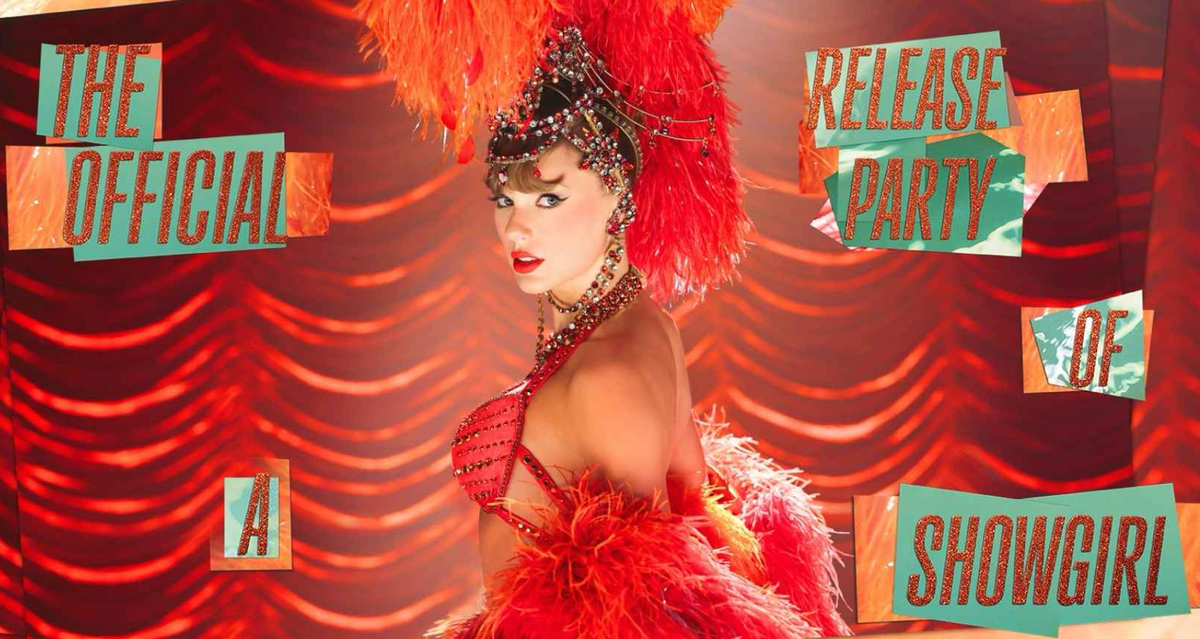
When she announced Life of a Showgirl on New Heights this summer, Taylor Swift made one thing clear: unlike her past two albums, which came with surprise songs in the hours following their release, her newest record was meant to be a singular statement. And so when the album released on Friday, fans had reason to believe that there would be no additional content beyond the concert film experience.
On Saturday night, though, Taylor Swift took to her social media accounts to announce that she wasn’t done after all. Citing the adage that one should “save their best for the finale,” and reminding her fans of the thrill of the acoustic section of the Eras Tour, she announced that there would be four additional, exclusive editions of her new album Life of a Showgirl with each featuring two new versions of songs on the record.
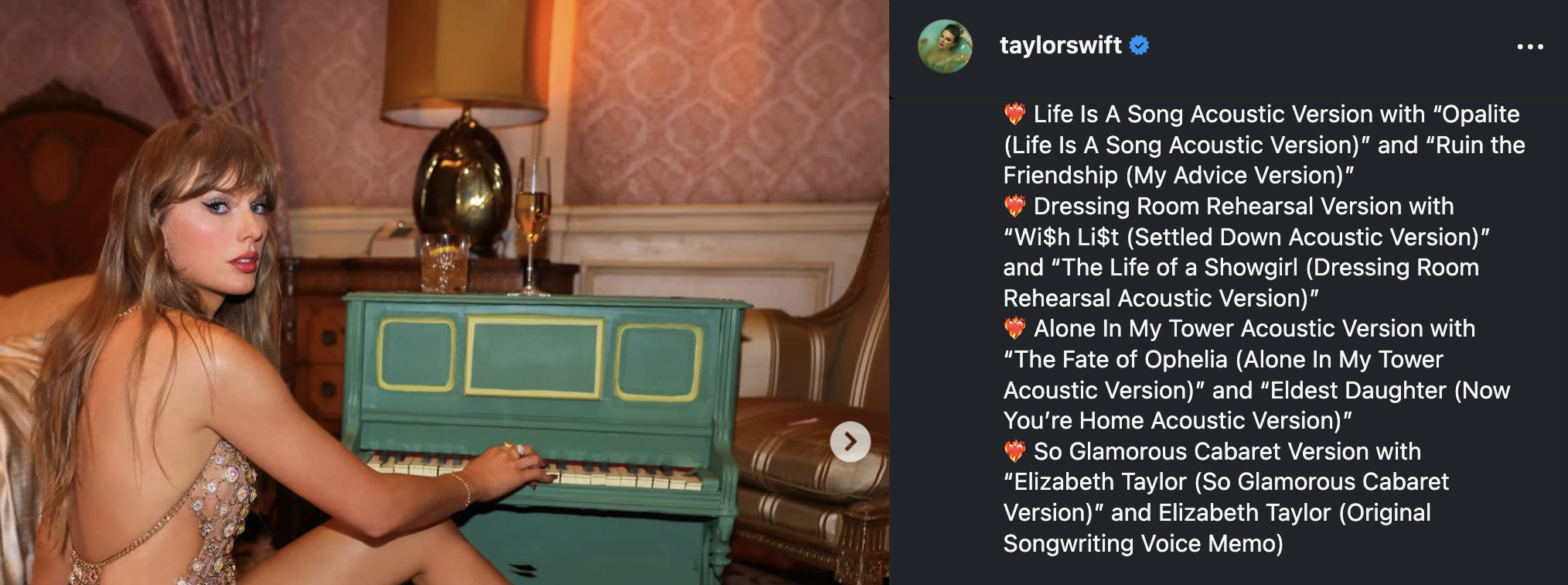
Now, technically speaking, these are not bonus tracks, so Taylor wasn’t lying. But I’d be so curious to know how the sales of those new versions end up compared to the myriad variants that were made available ahead of the album’s (massive) launch. Those variants are being sold sight unseen, with fans investing in owning a product from an artist they admire. These new variants, though, depend on fans connecting with the songs deeply enough to want new versions, which raises the question: is Life of a Showgirl the kind of album that inspires that level of investment on its merits?
This is a subjective question, obviously, but it also reinforces how irrelevant the actual content of Life of a Showgirl has been to this point. Every record set this weekend has nothing to do with the album itself: its sales were already baked in by the pre-sales on the variants, and the vast majority of tickets to the weekend box office-winning Official Release Party of a Showgirl were bought in advance. Even after drawing criticism for the nickel-and-diming of so many variants during the Taylor’s Version era, there is no evidence that Taylor’s fanbase is weary of being “part of” her music, at least in the abstract. I don’t mean to suggest that fans don’t care if the album is good, or that they’re unwilling to criticize it; rather, their investment in the idea of Taylor Swift operates independent of those factors.
However, this is the issue with Life of a Showgirl: objectively speaking, the idea of Taylor Swift has changed, and this is her first album where that is evident in the music itself. The Eras Tour transformed Taylor Swift from the world’s biggest pop star to its biggest celebrity, and while The Tortured Poets Departments was technically her first album to come out after this was true, that record was so laser-focused on her recent breakups that it fit comfortably into her hyper-personal discography. When combined with the Vault tracks from the Taylor’s Version releases reorienting fans to her younger emotions, Taylor’s ascendence within culture-at-large has happened alongside music that grounded her in a version in continuity with who she was “before” her present circumstances.
This is simply not the case with Life of a Showgirl. It’s true that the album’s primary subject area is her present relationship with now-fiancé Travis Kelce, which would seem in line with her past albums. However, across many of its other songs, Swift is writing adjacent to her own press, unmistakably occupying the identity that has emerged in her oversaturation era. And as the mixed reception to the record outside of the containment of her biggest fans demonstrates, this shift in frame has profoundly changed how her songs are understood. It’s not that she is doing anything she hasn’t done before: after all, she abandoned an almost-finished record to record reputation following her feud with Kanye West and Kim Kardashian, and it’s not like we don’t know what “Bad Blood” is about. The difference is that even though she was still wildly famous at that time, there was at least some suggestion that she existed in the same world as her fellow pop stars or even her listeners. Life of a Showgirl confirms that this is simply not the case.
Relatability is a complicated issue. When I was an undergraduate, one of my professors sent me back a paper I had written on autobiographical graphic novels with the world “relatable” crossed out, insisting that it “wasn’t a word.” I was perplexed by this, given that it clearly exists, but when I started grading papers myself years later I understood why she made that choice. The problem with using relatable as a broad adjective is that it’s too variable: relatable to whom, and in what way?
For this reason, I’m not going to suggest that Taylor Swift’s music isn’t relatable, in part because I’ve seen people relating to it over the past few days. My TikTok For You Page has been flooded by people using the sounds to reflect their own relationships: between fans documenting their relationships across the sea, the land, and the sky to “The Fate of Ophelia” and telling stories of when they chose to “Ruin the Friendship,” there’s plenty of evidence that her music continues to resonate with people. (There’s also the people with sweaty jock boyfriends using “Wood,” but I’m going to go ahead and say that is not widely relatable content).
@catersius their song #taylorswift #fyp #thelifeofashowgirl #tangled
♬ The Fate of Ophelia - Taylor Swift
There are also All The Pop Culture Edits.
However, from my experience, the extratextual reality of Taylor Swift’s life makes it more challenging to relate to her perspective. This was an interesting dynamic of experiencing Life of a Showgirl for the first time during the Official Release Party screening. Obviously, the theaters this weekend were a “safe space” for Taylor, filled with fans who have paid $12+ in order to see a music video that would be released on YouTube two days later for the first time. After the video for “The Fate of Ophelia” played, behind-the-scenes segments were used as act breaks within the album as Taylor introduced each subsequent song and then played the lyric video. Shot on the set of the music video, her introductions mirrored the interview segments in the folklore Long Pond Studio Sessions, breaking down her thinking behind each track.
It’s part of her longstanding efforts to reframe her music within the context of her personal authorship, which I wrote about in the context of the Voice Memos on 1989. There are elements of that here, as she talks about tracks or chord progressions introduced by collaborators Max Martin and Shellback, but she’s mostly focused on the statements she was trying to make with each song. Sometimes, this lets her draw ties back to her discography, as in her desire to go back to high school with “Ruin the Friendship.” In others, she articulates her romantic life, which may not be relatable to all and is cringe-inducing for some, but honestly plays as a natural extension of her star persona as it manifests within her music videos, the music itself, and through paratexts like this one.
But it’s when she attempts to explain her songs that are more direct commentary on her place within culture that things start to fall apart. In the case of “Actually Romantic,” Swift’s introduction fails because it refuses to state the obvious. Although I've somehow seen some fans insist otherwise in TikTok comment threads, the song is clearly a response to Charli XCX’s evocation of Swift in “Sympathy is a Knife.” And yet Swift’s introduction frames it as a hypothetical, pretending that it’s a relatable situation people get into as opposed to a thinly veiled clapback to another pop star.
At Slate, friend of the newsletter Sam Adams frames this as “punching down,” but I argue the reason it plays weirdly is that Swift isn’t articulating her position within society through her music enough for that to be completely true. She wants to live in the bubble of her own world, and when you’re in a theater full of fans there’s a moment where you almost believe her. I realized watching it that people are in a parasocial relationship with Taylor Swift, but it has been years since she’s actually given people a genuine, intimate look at her life (2019’s Miss Americana). The retrospective nature of the Eras Tour maintained her connection to a time when this was closer to true, but the disconnect with the private jets and the private boxes has grown too big to ignore for society at large. However, the parasocial Taylor Swift is a liminal figure independent of those hierarchies, which makes “Actually Romantic” something different than how it’s received by those who perceive Swift as the untouchable megastar she is (i.e. everyone posting the lyrics on social media with derision).
Now, Taylor Swift has every right to feel however she feels, but her choice to start singing from that perspective is going to come with criticism. “CANCELLED!” is the most tone deaf song on the record, not so much because she’s defending her association with certain people (probably Brittany Mahomes, maybe Blake Lively), but rather because she’s writing to her audience as though they are part of the same elite part of the world where “cancellation” is an actual thing. Again, there are parts of the song that aren’t far from the core message of something like “The Man,” but whereas there Swift was connecting herself to a broader discourse of feminism, there’s no broader discourse of cancellation. It is a thing that happens to famous people, and the idea that this is what inspires her creatively is a reminder of the narrowness of the world she lives in.
Speaking of “The Man,” I’ve been thinking a lot about Lover this weekend while listening to Life of a Showgirl. There are clear parallels, as both albums came at a time when Taylor was stable and in love. And while we can debate the relative merits of the swoony songs on Lover to the same on Life of a Showgirl, it’s hard to ignore what else was on Taylor’s mind at the same time. Lover was the record where Taylor discovered her feminism on “The Man” and her allyship on “You Need To Calm Down,” and where her support for the Equality Act was the lead story. It was a version of Taylor that, as the first Trump presidency came to a close, understood herself as a social actor, and who was taking responsibility for that for the first time after a decade trapped in the restrictive role of the country star.
Life of a Showgirl is not intended as a political statement, framed by Taylor as a fun pop record tied to her reunion with Martin and Shellback, but it registers as a conservative one based on its insulation from the real world. I don’t mean this in the sense that the absence of explicitly liberal politics means that Taylor Swift is actively endorsing the current regime, an argument that has never held water. But the problem is that it’s no longer possible for Taylor Swift to escape her place within culture, and the reception to Life of a Showgirl shows a breaking point in the ability for her to position her art as escapist entertainment given the sheer scale of her fame.
It’s not a question of whether the album is good or bad, but rather a question of whether Taylor Swift’s musical worldview is compatible with her place within that world. Anything she releases is guaranteed to set records and reassert her dominance within the capitalist logics of the industry she operates in, but to this point her music itself has had some distance from that context. But now that this is no longer the case, there are going to be songs that break containment, and where whatever control she has over the narrative in movie theaters will be swiftly undone by all other available evidence.
Episodic Observations
- The most immediate drawback of experiencing the album the first time onscreen? The fact that all the lyric videos were the clean versions, meaning that I missed out on one of the key discourses about the album’s cringe factor. It was also a very different experience as someone who historically connects more with Swift’s musicality than her lyricism to experience the songs in a lyric-forward format.
- Given this, “Opalite” was probably my immediate favorite, and the dance videos on TikTok have fully sold me on “The Fate of Ophelia.” And while it may not be a great look, the pastiche of “Actually Romantic” is pretty undeniable. I wish there were fewer skips between them, but we'll see what grows on me.
- As for the earnest horniness of “Wood,” I really think that the best way to experience this song is following Taylor Swift sitting in a director’s chair straight-faced saying that it’s a song about superstitions with no conviction. Even with the Clean version, the joke hit hard.
- "Father Figure" is perhaps the most complicating song on the record in terms of point-of-view, as in her introduction during the screening she acknowledges that she relates to both perspectives. The general read has been that it refers to her falling out with Olivia Rodrigo, but it's straddling some temporal lines.
- Regarding the Swiftian bubble, I did appreciate how the video for “The Fate of Ophelia” operates as a tribute of sorts to the Eras Tour, given its importance to herself and her fans alike. She remains an extremely literal director, but this is a well-realized visual experience, and a reminder of what proper budgets can do with production design.
- For the record, Swift’s introduction did suggest that people sing along, but the closest we got on Friday afternoon was people snickering a bit at the clean versions of the songs they had come to know as explicit. Whether this was different in the Dolby Cinema screening that was almost sold out at the same time is unclear. I imagine it might have been different later in the weekend.
- As far as the behind-the-scenes footage, I was mostly just satisfied seeing much more Mandy Moore, who remains a favorite from her time on So You Think You Can Dance. I did also appreciate the follow-through on her bread talk on New Heights, as one of her loaves appears in the video.
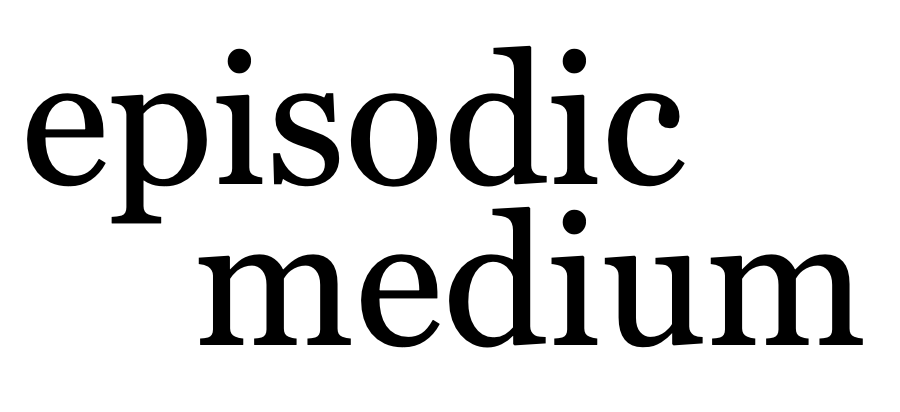
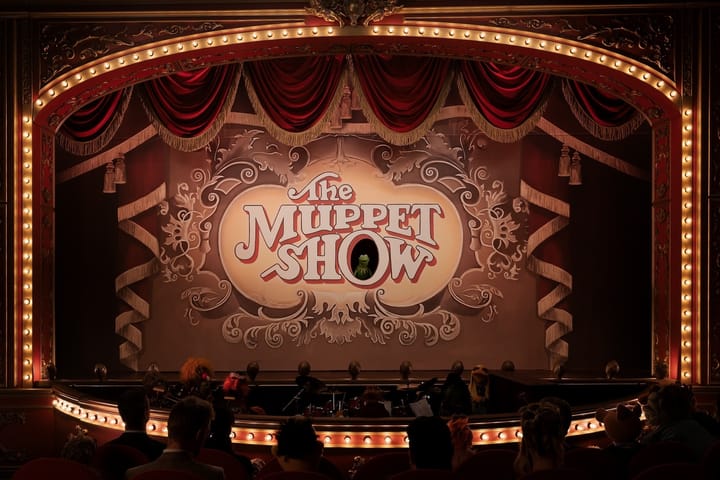
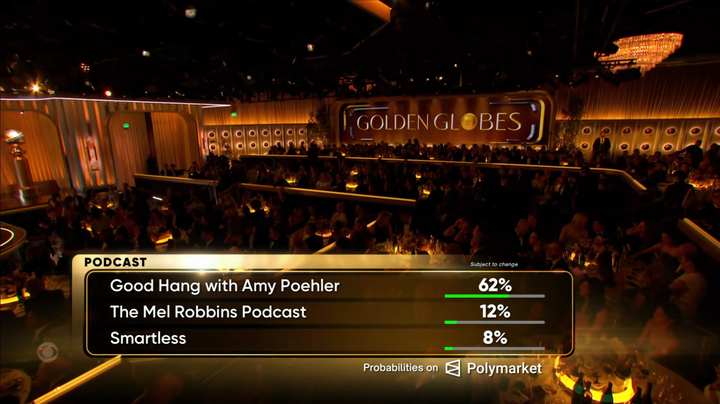

Comments ()